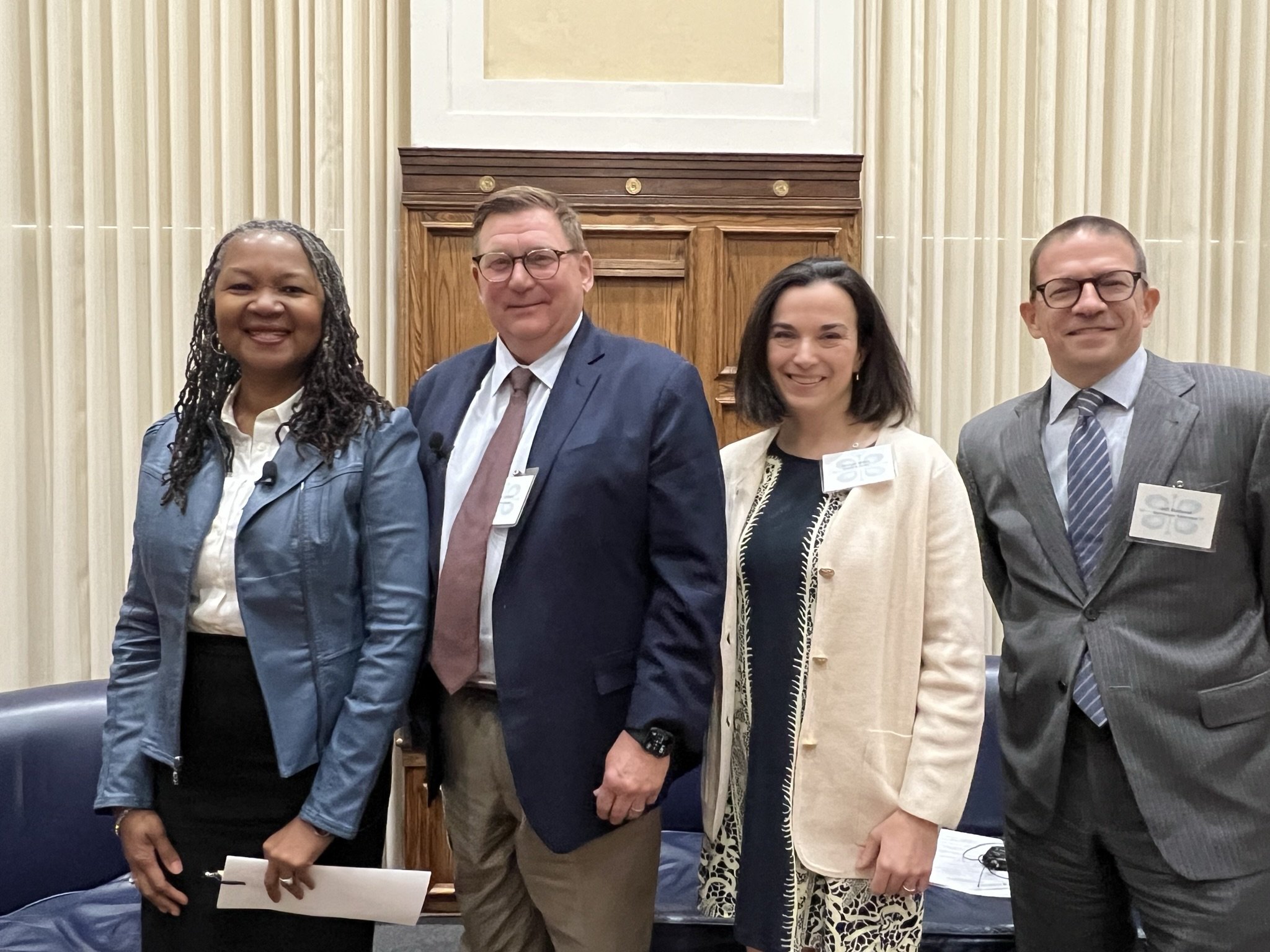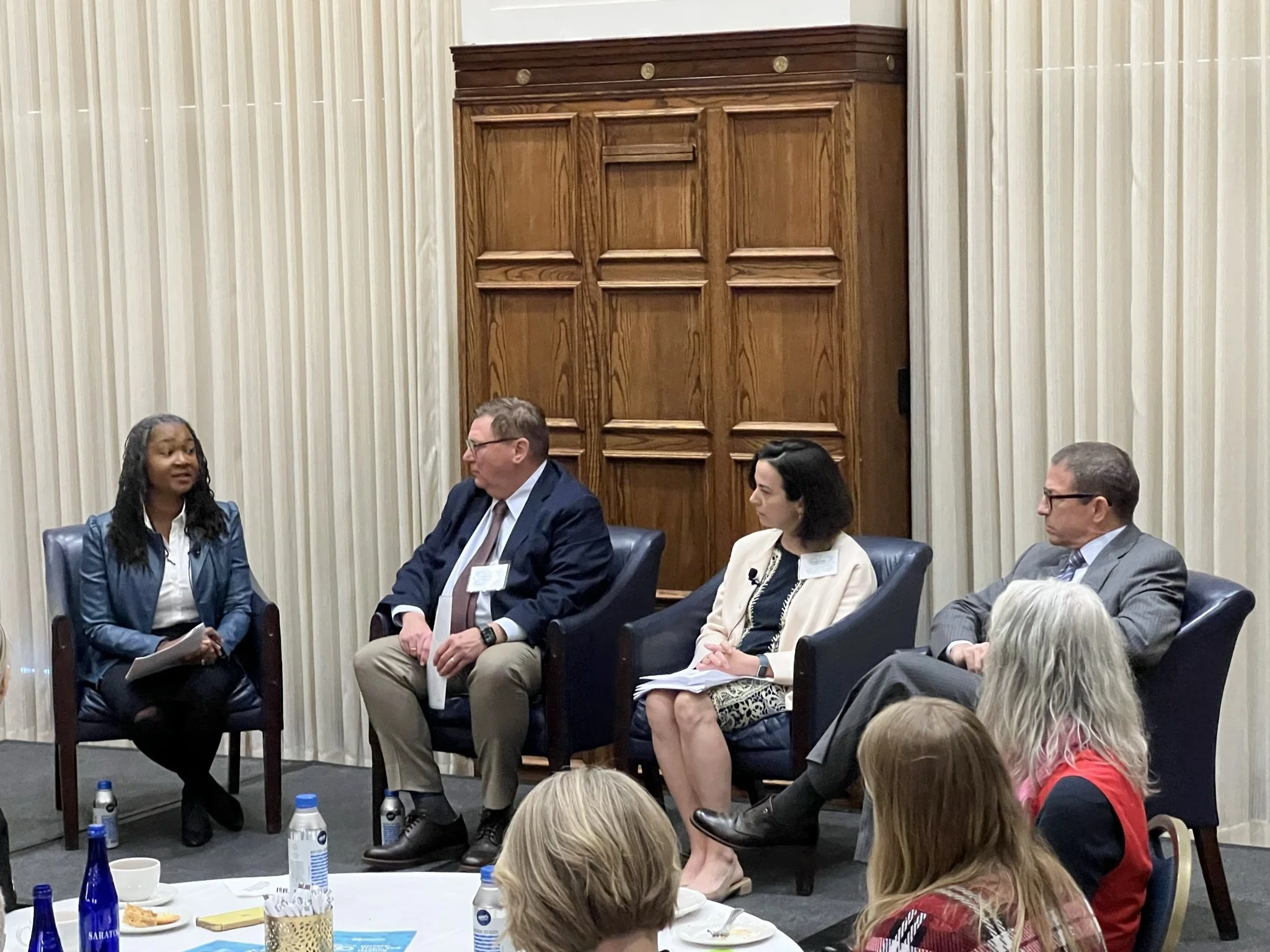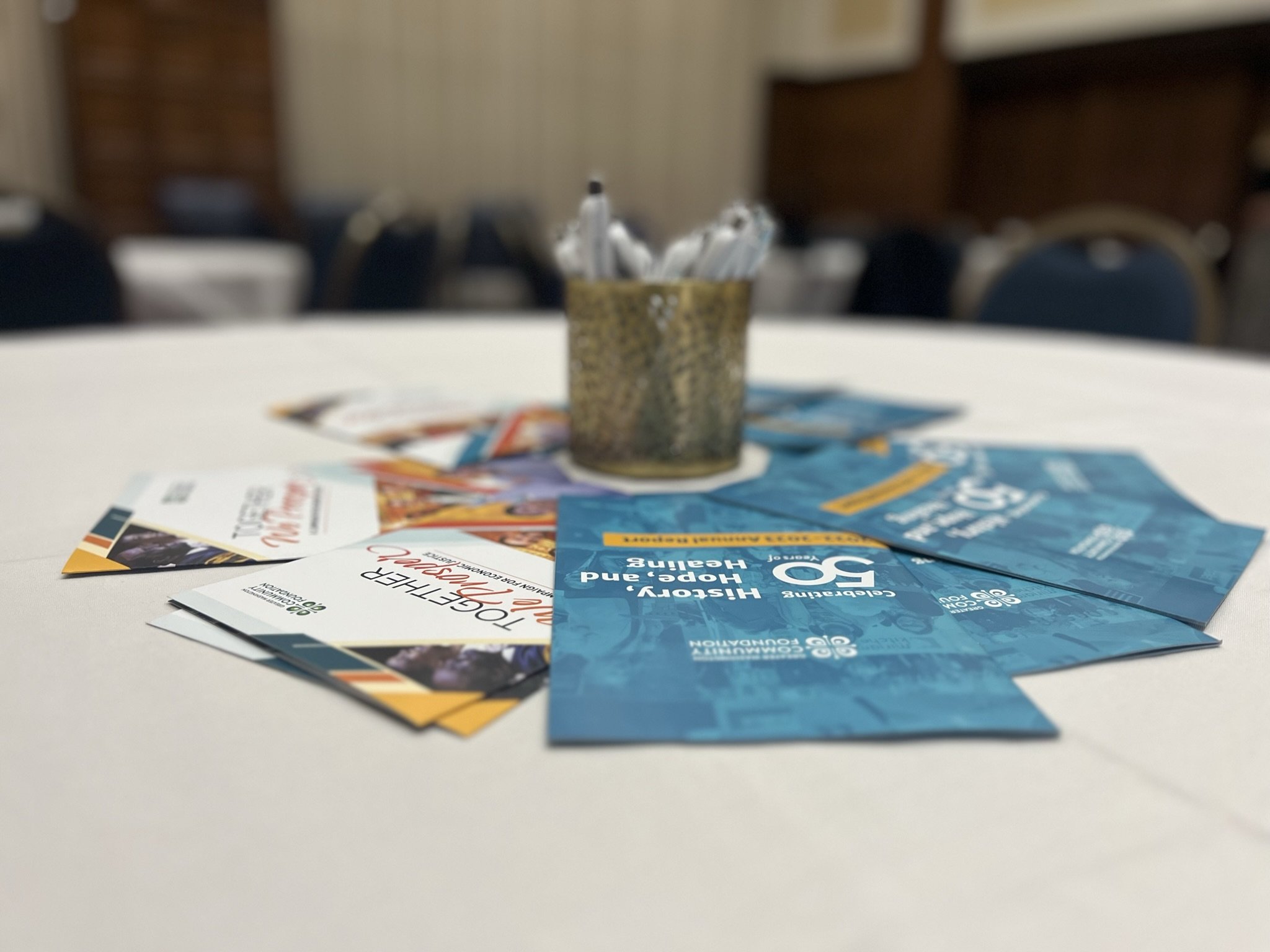In early November, The Community Foundation gathered at the National Press Club for its Annual Professional Advisors Luncheon. Organized by The Community Foundation’s Professional Advisor Council, the event brings together professional advisors and financial planners from across the region to network and discuss important topics for them and their clients.
“As Professional Advisors, we play a critical role in helping our clients maximize their philanthropic impact,” Karen Wawrzaszek, Co-Chair of The Community Foundation’s Professional Advisor Council, shared. “The Community Foundation is an invaluable partner and resource to help us achieve the best possible outcome for our clients and community.”
The luncheon featured a panel of professional advisors and experts to discuss the various mediums donors can utilize to enhance their philanthropic impact.
“We have seen increasingly over the past few years that philanthropists want to move beyond just charity,” The Community Foundation’s President & CEO Tonia Wellons, who served as moderator for the discussion, shared. “Philanthropists are increasingly looking to get involved in advocacy and more permanent solutions that can lead to systems change.”
“Philanthropy is no longer an extra,” Scott Jackson, President & CEO of Global Impact, shared. “Philanthropy can lead and drive change – and donors want to be a part of it.”
Established in 1956, Global Impact is a nonprofit that works with international charities based in the United States. Originally organized as a 501 c(3), Jackson says the organization recently expanded, to launch a 501 c(4) because of this shifting trend in donor engagement regarding system change work.
“If you look at the latest Giving Tuesday Data, 60% of philanthropy is no longer going to traditional nonprofits,” Jackson shared. “It’s going to coalitions, community foundations, and 501 c(4)’s.”
“Donors – especially younger donors – are increasingly looking for change. They want organizations that are movement builders and advocates – something that we didn’t feel we could do effectively under the 501 c(3) status. So we made the transition.”
Global Impact’s move reflects a conversation that many professional advisors say their clients are raising, as many look to move beyond traditional DAFs (donor-advised funds) for new avenues to make a deeper impact, including establishing their own 501 c(3) or c(4) as a channel for their philanthropic impact.
““If your clients want extra help transitioning
from being charitable and making contributions
to being philanthropic and making a difference,
a community foundation is a great place for them.””
“What we’re seeing from our clients is that if you want to change the world, you have to use all your tools,” Bridgette Weiss, Partner at Arnold & Porter, shared. “We’re seeing folks be much more adventurous than they were in the past.”
While most 501 c(3)’s are set up for specific charitable purposes, 501 c(4)’s have a broader purpose of promoting social welfare – which allows them more freedom and flexibility to do things like lobbying, political campaigning, and education around public policy.
However, Weiss shared, there are plenty of trade-offs. Unlike 501 c(3)’s, contributions to 501 c(4) organizations are not tax deductible. In addition, operating a 501 c(4) requires more infrastructure to ensure that the organization complies with IRS regulations.
“There is no ‘one-size fits all’ solution. It all comes down to your clients’ personal goals,” Weiss added. “What is their comfort with risk tolerance, deductibility, disclosure, and compliance?”
“Don’t be afraid to be creative in finding the best structures for your client,” she added. “There’s a lot of opportunities to have real impact. It’s all about exploring the available tools within each structure to find what feels best for your client’s needs and interests.”
Jeff Hammond, Vice President at Van Scoyoc Associates (VSA) – a leading lobbyist and government affairs firm – suggested that partnering with a community foundation is a great place to start. Hammond has over a decade of experience lobbying on behalf of philanthropic organizations and individuals – including The Community Foundation.
“If your client wants to get involved in advocacy, but they can’t do all the administrative work that advocacy requires, The Community Foundation can help,” Hammond shared – pointing out that most wealthy individuals may not have the capacity to run a private foundation or 501 c(4). “Unlike private foundations, community foundations are public foundations, so they have more flexibility to lobby around issues important to donors and their communities. They also have years of experience and relationships with the communities they serve that can provide donors with a direct conduit to making a significant impact.”
Hammond pointed out that community foundations have become increasingly involved in advocacy nationally. This is partly due to a post-pandemic leadership shift, as Boards for many of the top 60 community foundations in the country have hired more CEOs from the nonprofit sector, as opposed to those from traditional philanthropic backgrounds. The result is that community foundations are becoming more community-focused and mission-driven, with a growing focus on direct advocacy and policy change.
“There’s a trend I’m seeing on Capitol Hill,” Hammond shared. “Staff on the Hill are starting to recognize what Community Foundations are and the power they have to promote change in their communities.”
“If your clients want extra help transitioning from being charitable and making contributions to being philanthropic and making a difference, a community foundation is a great place for them.”
The Community Foundation’s Professional Advisor Councilhelps connect estate planning attorneys, wealth advisors and financial professionals with the resources and information they need to help their clients maximize their philanthropic impact and achieve their goals. For more information, visit our website or read how partnering with The Community Foundation can enhance your client’s philanthropy.




